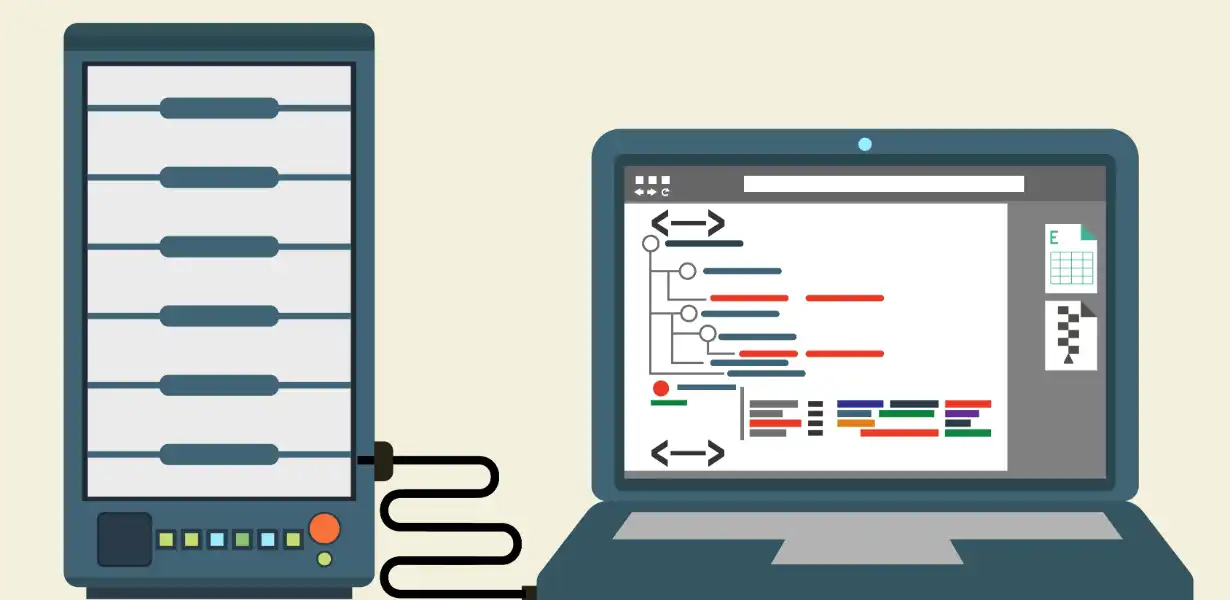
Next-Gen Security in Dedicated Hosting: Harnessing AI and Blockchain Defenses
- Post
- August 7, 2023
- Dedicated Hosting, Internet & Web Services, Web Hosting
- 0 Comments
In the ever-evolving landscape of technology, dedicated hosting has emerged as a cornerstone for businesses seeking enhanced security and performance. As the digital realm becomes more intricate, so do the threats that loom over sensitive data. In this comprehensive discourse, we delve into the symbiotic marriage of AI and blockchain within dedicated hosting, forming an impregnable fortress against cyber adversaries. Our journey navigates through the inner workings of these cutting-edge defenses, unraveling their synergy and ushering in a new era of impervious web hosting.
The Essence of Dedicated Hosting
At the heart of our exploration lies dedicated hosting, an avant-garde solution for businesses demanding exclusive control over their server environment. Unlike shared hosting, dedicated hosting empowers enterprises with an entire server solely dedicated to their needs. This unparalleled sovereignty over hardware and software architecture lays the foundation for a fortified defense system.
Unveiling the Power of AI Sentinel
In the realm of next-gen security, artificial intelligence stands tall as the sentinel guarding the digital gates. The AI sentinel is equipped with cognitive prowess, tirelessly analyzing patterns and anomalies to thwart potential breaches. Powered by machine learning algorithms, it adapts in real-time, imbibing new threat vectors and evolving into an impervious guardian.
The Blockchain Bastion
Incorporating blockchain technology as an immutable ledger adds an extra layer of resilience to dedicated hosting. By distributing data across a decentralized network, blockchain eliminates the single point of failure. This distributed consensus mechanism not only fortifies data integrity but also amplifies data availability, rendering targeted attacks futile.
Fortifying Network Perimeters: AI-Powered Firewalls
The initial line of defense is fortified by AI-powered firewalls, which stand as sentinels guarding against unauthorized access. Unlike conventional firewalls, their intelligence thrives on dynamic decision-making, identifying and blocking malicious activities before they infiltrate the network.
Dynamic Threat Detection with AI
AI’s analytical prowess comes to the fore in dynamic threat detection. It scans network traffic in real-time, discerning normal behavior from anomalies with pinpoint accuracy. This proactive approach ensures swift mitigation of potential threats, preventing any substantial damage.
Immutable Identity Verification through Blockchain
Blockchain’s tamper-proof nature finds its stride in identity verification. Through smart contracts, user identities are securely stored and authenticated. This decentralized approach ensures that only legitimate users gain access, thwarting identity theft and unauthorized infiltrations.
AI-Driven Incident Response: Mitigation on the Fly
In the event of a breach, AI-driven incident response orchestrates a swift and calibrated counterattack. The sentinel analyzes the breach’s scope, formulates an optimized response, and executes it with precision, minimizing downtime and data compromise.
The Resilient Data Citadel: Blockchain Encryption
Data encryption, fortified by blockchain’s decentralized infrastructure, forms a resilient citadel for sensitive information. Encrypted data fragments are distributed across the network, rendering them indecipherable without the requisite keys, even if a breach were to occur.
Ensuring High Availability with AI Load Balancers
AI-powered load balancers ensure high availability by intelligently distributing incoming traffic across multiple servers. This dynamic equilibrium optimizes resource utilization and neutralizes DDoS attacks, maintaining seamless operation even under duress.
Addressing the Unveiled Realities
Q1: How does AI adapt to new cyber threats over time?
AI’s adaptability stems from machine learning algorithms that continuously learn from new threat patterns, evolving its defense mechanisms in real-time.
Q2: Can blockchain prevent data tampering?
Absolutely. Blockchain’s decentralized and immutable nature ensures that once data is recorded, it cannot be altered or tampered with.
Q3: How does AI incident response differ from traditional methods?
AI incident response is swift, data-driven, and automated. It quickly assesses breach scope and executes optimal mitigation strategies, reducing response time.
Q4: What role does blockchain play in identity verification?
Blockchain ensures secure and tamper-proof identity verification through decentralized storage and smart contracts, minimizing the risk of identity theft.
Q5: How do AI load balancers enhance hosting performance?
AI load balancers intelligently distribute traffic, optimizing server resource utilization, enhancing performance, and mitigating the impact of DDoS attacks.
Final Words
In the seamless amalgamation of AI and blockchain within dedicated hosting, a new echelon of security is born. This synergy fortifies data, thwarts cyber adversaries, and elevates the realm of web hosting to unprecedented heights. As businesses navigate the ever-expanding digital landscape, the formidable alliance of AI and blockchain stands as the vanguard, ensuring impregnable defense and ushering in a future where security knows no compromise.




